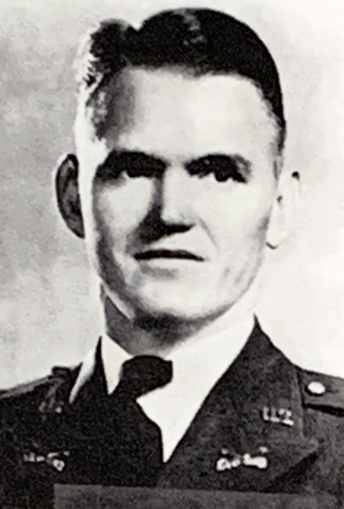
MAJ Harvey Storms, Korean War Vet, finally laid to rest 70 years after being KIA
 By Will Dowd (Will, Tom’s son, is a Major in the USAF currently stationed in Hawaii at US Indo-Pacific Command)
By Will Dowd (Will, Tom’s son, is a Major in the USAF currently stationed in Hawaii at US Indo-Pacific Command)
July 27th was the 68th National Korean War Armistice Day. For the first time, that meant something to me. You see, I had just return from a very unique mission, and found myself surprisingly linked to that day of remembrance. While I have been in the military for over 14 years and have been to South Korea numerous times, I haven’t ever felt a deep connection to that generation of warriors, much to my chagrin. The Korean War was fraught with logistical nightmares, horrific weather, unprepared and poorly provisioned troops, and the sudden involvement of supposed neutral third parties in ways that affect the Korean Peninsula to this day. The Korean War is also unfortunately sandwiched in history between the most decisive American victory, and its most humiliating defeat. It is no wonder it has been called the Forgotten War. In April this year, I received cause to learn more about this awful confrontation that ultimately claimed over 5 million lives.
I was happily working away at US Indo-Pacific Command in the Future Capabilities Branch, when I received an email from the US Army Casualty Assistance Center on Oahu, notifying me that I had been requested for an escort mission. When a member of the Armed Forces dies in conflict, someone must escort him or her home. It is a mission of utmost solemnity, and not one that any service member takes lightly. I was slightly confused, because I fortunately hadn’t lost any friends recently, and started getting nervous, until I read that I had been requested, not assigned. My uncle, Robert Storms, along with his brothers had requested that I escort their father, Army Major Harvey Storms back to the states to be interred at Arlington National Cemetery. In order to be eligible to escort a fallen service member, you have to be equivalent or higher rank, in the chain of command, or requested by the family. I was eligible to escort Major Harvey Storms, US Army, home and I quickly accepted.

I didn’t know anything about Major Storms, and I quickly learned as much as I could about his life and service. He served honorably in both World War II and the Korean War, and was a highly decorated Army Officer with numerous awards. However, not much was known about what happened to him in Korea. He died when his oldest son was 10 years old, and his youngest son, my uncle, was about to be born. The last intelligence received about him was that he had been sent to secure the Chosin Reservoir, which was known to be one of the most historic instances of horrific weather and terrible odds. The weather reached negative 30 Fahrenheit by some estimates, and the Chinese reinforcements overwhelmed the American thrust northwest. Major Harvey Storms died in 1950 at the Chosin Reservoir (Battle of Lake Jangjin in Korean), and the last account of his actions state that he had been shot over 10 times, but refused to retreat, and was last seen sliding down an icy hill, telling his men “I have fought a good fight; you kids go over the hill and knock out that roadblock. I’ll go back down and get the rest of them.”
In 2018, the crew of REPAT 74, a C-17 out of Hawaii, brought his remains to the Defense POW/MIA Accounting Agency (DPAA) here on Oahu. This mission was commanded by a friend of mine from USAFWS 16A and piloted by a friend I taught in Undergraduate Pilot Training (UTP). In 2019, the DPAA identified his remains. It had been 69 years since the family had learned Major Storms was Missing In Action.
MAJ Storms was supposed to be laid to rest in 2020, but like many things during the pandemic, this mission slipped for a full year. During this time period, I was identified as a distant relative and of equivalent rank and asked by the family members if I would bring their dad home.
I began working with the Army Casualty Assistance Center in April to start the process of bringing MAJ Storms home. Ordinarily, the duties of the Escorting Officer are to merely transport the fallen soldier to the funeral home arranging his burial, then head home. Since he was family, and at the request of MAJ Storms’ sons, I was able to see him laid to rest at Arlington National Cemetery with full military honors in plot 32.
I’ve done a number of rewarding missions throughout my career, but being able to call my uncle and tell him and his brothers “I’ve got your dad, and I’m bringing him home” trumps all the others. The closure and relief they felt by seeing their father laid to rest ended a 71-year period of uncertainty, punctuated with a celebration of the legacy that their father handed down to them.



